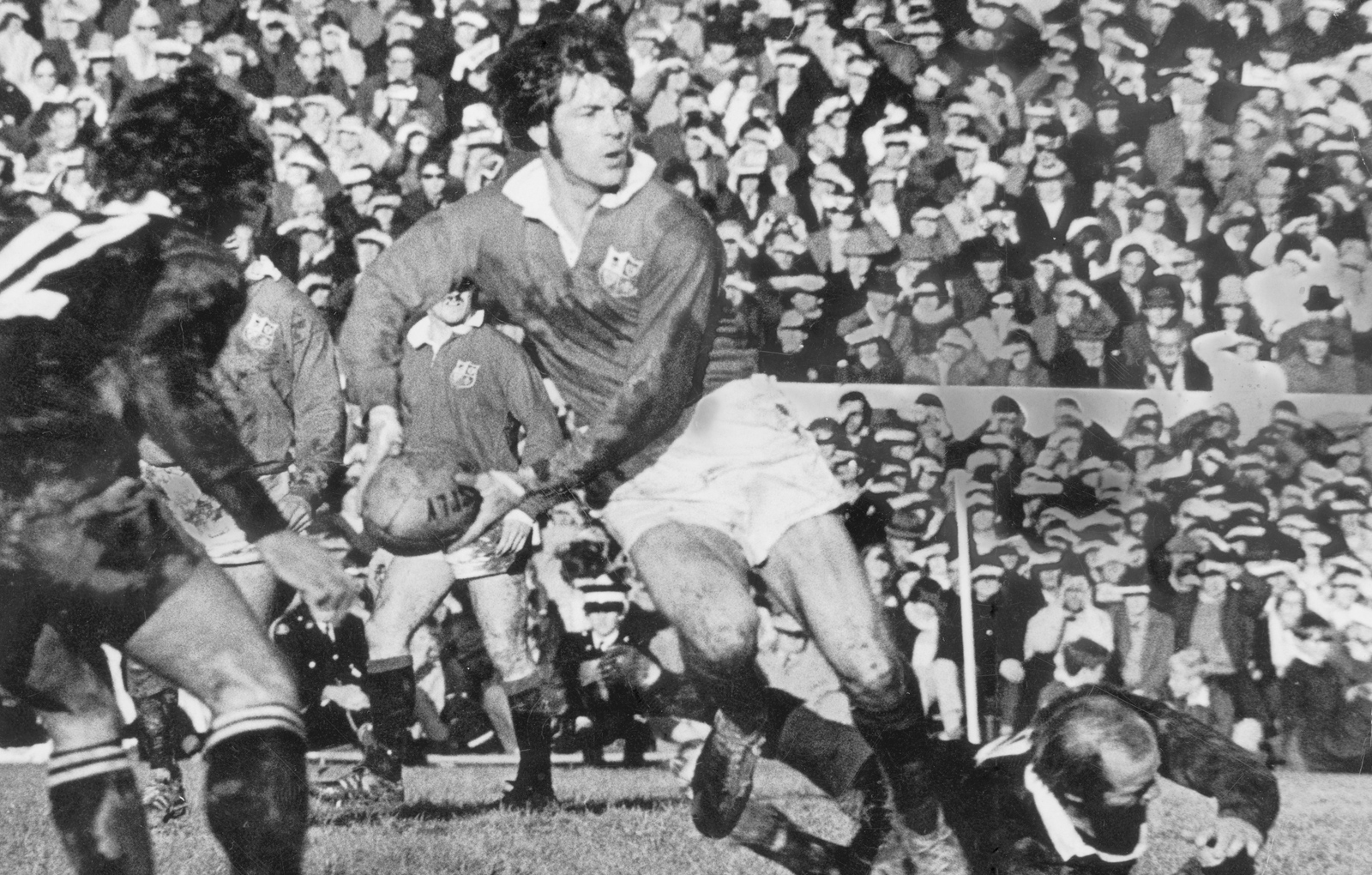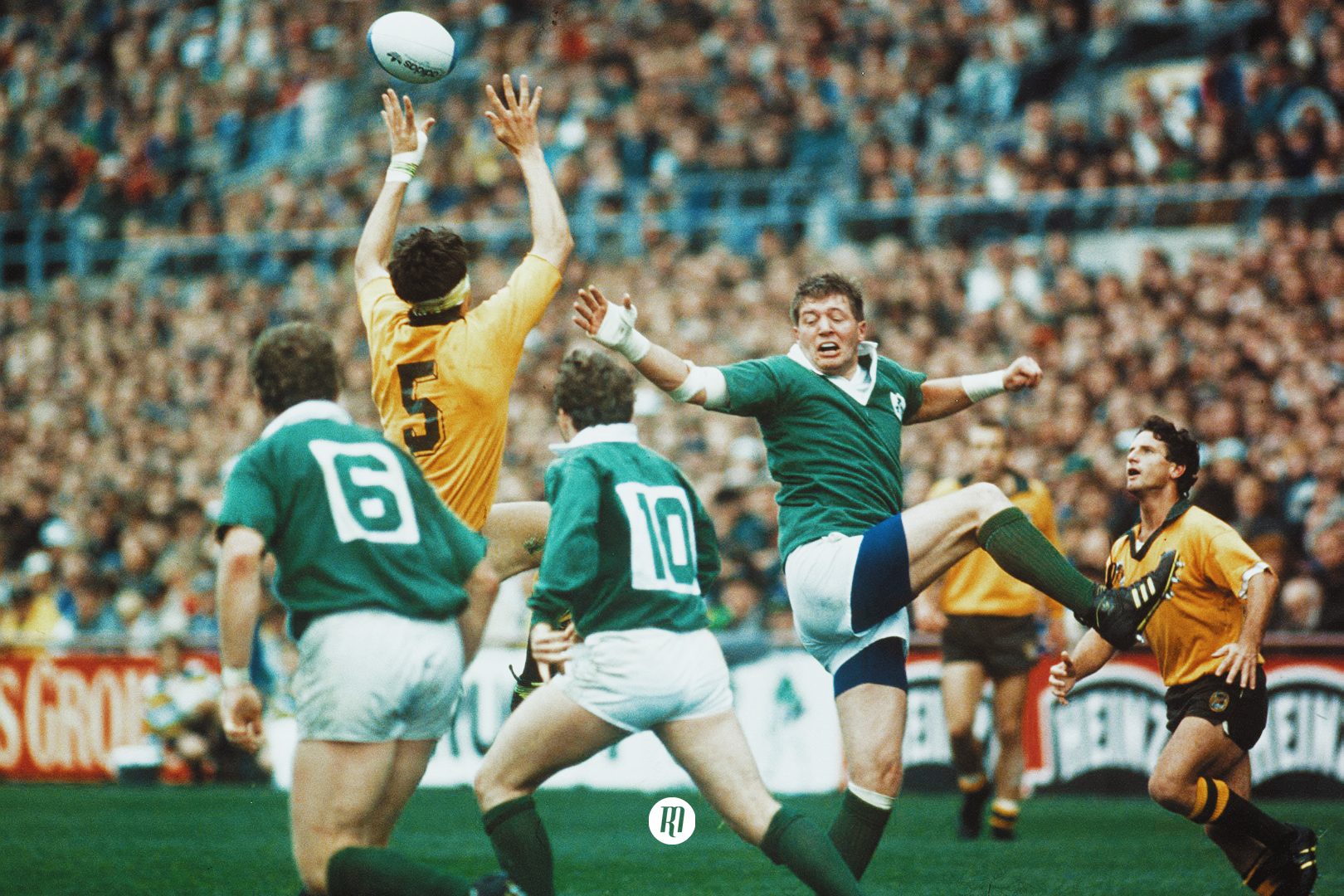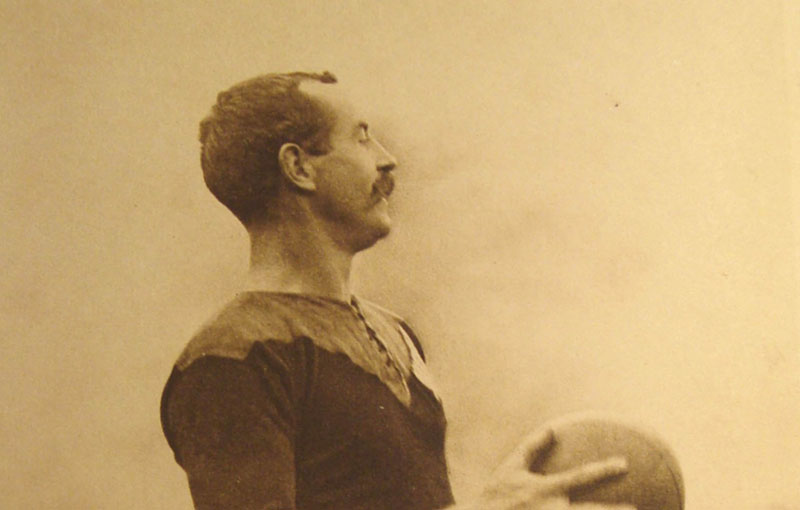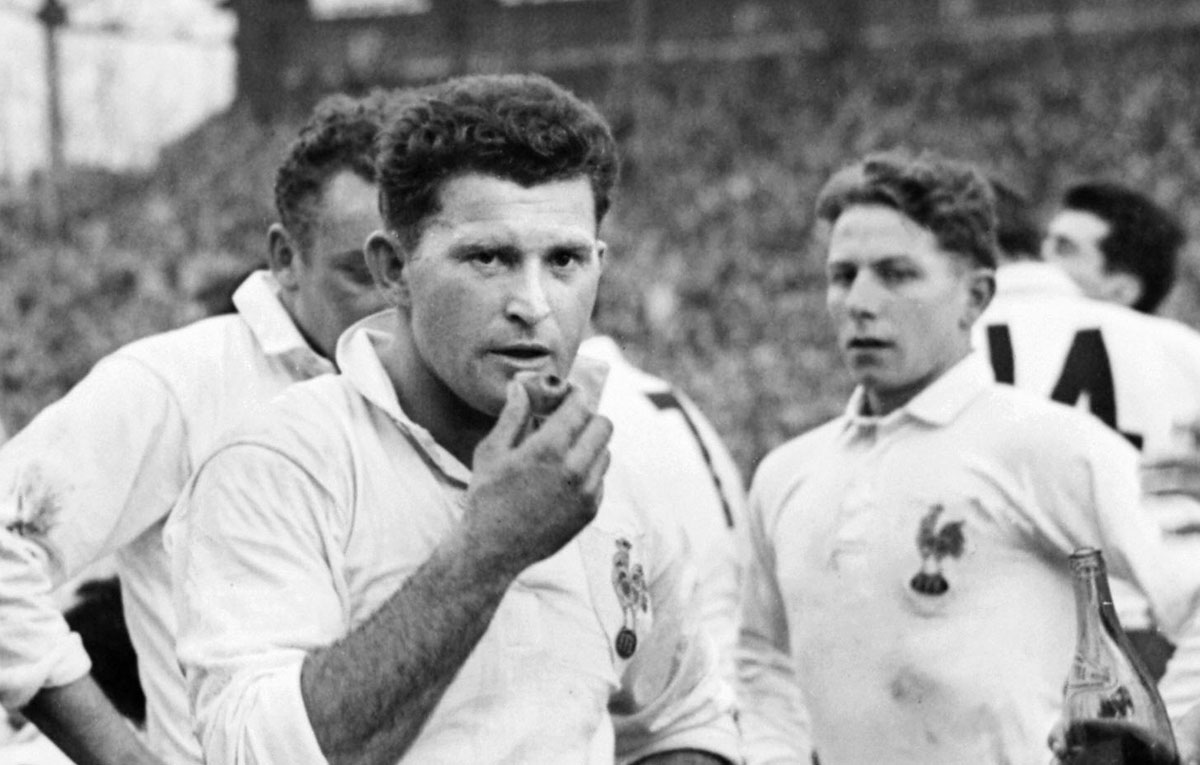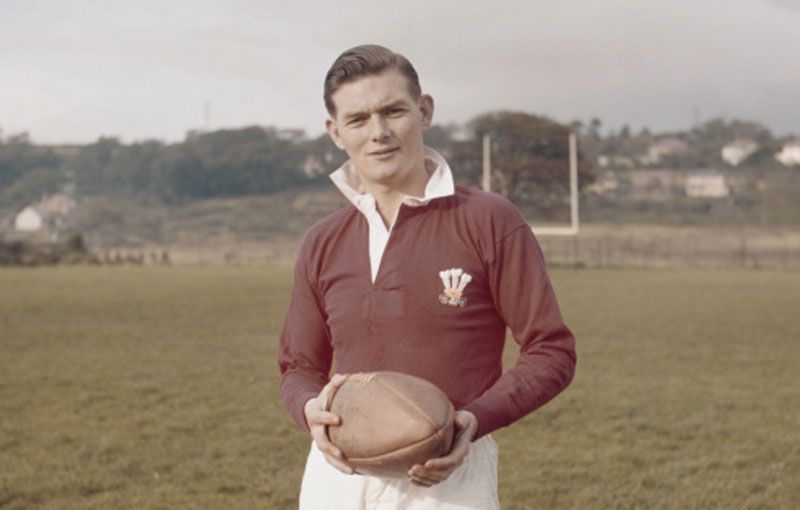Barry John: All Hail The King
Wales' second golden age was one of the greatest teams in the history of the game, and at its heart was the mercurial Barry John, one of the greatest players ever to grace the field.
The All Blacks were in a panic.
After the first test of the 1971 Lions’ tour, New Zealand fullback Fergie McCormick’s international career looked set to be over, such was the devastation wrought by the quality of kicking from the Lions’ outside half. The All Blacks were left having to make their selections based on the threat that one man posed.
That man was Barry John, The King.
The 1971 tour to New Zealand is littered with stars, but none shone so brightly as the Welshman, whose innate ability, instinct and calm was one of the key reasons the team remain the only Lions side to win in New Zealand.
John’s international career didn’t start as well as it had finished though. Touring Australia in 1966, he was introduced as a replacement to the tiring David Watkins, who had been captain of the Lions side that had toured the country in the same year. Despite playing against what was described as an experimental Australian side, Wales lost the game by 14 points to 11, and John was criticised for a poor performance.
When 1967 came around, he was included in the starting line up for the opening game of the Five Nations against Scotland, but carrying an injury, he put in another poor performance and was subsequently dropped. Wales managed a single victory, beating perennial rivals England in Cardiff. Watkins was the man at 10 that day, but it wasn’t enough to stop Wales from finishing in last place.
An inauspicious start.
While the outset of his international career seemingly went against him, his club form for Llanelli gave witness to the genius within.
John was born in January 1945, in Cefneithin, a village that also produced the 1971 Lions winning coach Carwyn James. Some nine miles north of Llanelli, it wasn’t long before the talented youngster found himself at Stradey Park, making his first top-flight appearance for the club while still a teenager in 1964. Llanelli would lose the game, but not before John had scored and converted a try.
Even at this early stage of his career, he was noted for being a very gifted footballer, capable of punting the ball with unfailing accuracy, pinning the opposition back. There was more to his game though; incredible footwork allowed him to take a defence on, and his timing and precision in his pass opened up the game for those outside him. He rose above his contemporaries with incredible talent and instinct.
His stock rose through the 1964/65 season as he made his mark on the Welsh domestic game, and his impressive performances against Swansea through the 1965/66 season brought the call up to the 1966 Australia tour in which he would earn his first test cap. As we have learnt, Wales lost that game, but a month later, John was able to gain the upper hand by beating the touring Wallabies with his club side, Llanelli.
By 1967, having appeared twice for Wales and failing to set the international stage alight, John left Llanelli to join Cardiff. Here, he would form a partnership that would redefine Welsh rugby, and terrorise the All Blacks; his scrum half would be Gareth Edwards.
Barry John had regained his international place after David Watkins had made the cross-code switch to Salford, but again, his international career spluttered before it had started. Nothing in this fixture suggested that the pairing of John and Edwards would go on to be one of the greatest in the history of rugby; a rain soaked boggy field, and a strong wind doused any hopes of an entertaining fixture. Edwards couldn’t settle, and John’s compass was broken. The game was over as a contest when Bill Davies was gifted an easy try from a wayward pass by John Jeffrey, and New Zealand won the game 13 points to 8.
When 1968 came around, it brought with it a Lions tour to South Africa, but again, lady luck failed to smile upon John. Having played in three matches against provincial sides, he was selected to play in the first test. Quarter of an hour into proceedings, as he dashed for the line, he was brought down upon the hard ground by Jan Ellis, breaking his collarbone.
1969 brought a raft of changes to the Welsh side going into the Five Nations championship. In the first fixture against Scotland, five players were dropped, and debuts were handed to players such as J.P.R Williams and Mervyn Davies.
Little did anyone know that this was the beginning of the greatest era of Welsh rugby.
A victory in the opening fixture against Scotland saw John score his first international try, and the game was always in the Welshman’s favour. From there, they welcomed Ireland to the Arms Park, who having beaten England in their previous fixture, were on a seven match unbeaten run with designs on the Grand Slam.
The Welsh despatched them with consummate ease, their forwards dominating proceedings. John controlled the game with his kicking and remained an ever potent threat with his drop-kicking ability.
A draw against France denied Wales the Grand Slam, but the Triple Crown was secured with an emphatic victory over England. While John scored himself, the game is best remembered for the four tries scored by Maurice Richards.
Wales’ dominion was set to begin.
The partnership between John and Edwards lit up the 1971 Five Nations championship. Seen as the greatest squad ever to be fielded by Wales, the team beat the home nations to acquire the Triple Crown, before defeating France in their final match to win the Grand Slam. John would have a fantastic tournament, and later in the year would be selected to tour New Zealand with the British Lions.
John had not had the best experience when he had last visited New Zealand, with Wales back in 1969. Beaten soundly in both tests by the All Blacks, they managed only minor redemption in beating Australia and Fiji on the way home. John was determined not to let the same happen again.
Under the guidance of the man from his home town, Carwyn James, John would cement his status as a legend of the game, playing some incredible rugby. Despite the opening game of the tour against Queensland ending in a loss for the touring side, win was followed by win, and by the time the first test had come around, Barry John had played six games.
With the luxury of steady ball that the dominant pack afforded him, John’s consummate kicking kept the All Blacks on the back foot throughout the match. Two penalties from John and a try from Ian McLauchlan earned the Lions a 9 points to 3 victory. Terrorised fullback Fergie McCormick would never play for his country again.
The All Blacks were in a panic.
New Zealand were left having to make their selections based on the threat one man posed.
The second test was a resounding defeat for the tourists. The home side had clearly made the right changes to their team, but many of the Lions would later admit that they had perhaps gone into this second test overconfident after their victory in the first.
Either way, the series was tied going into the third game, and a win became paramount.
There was no arrogance to Barry John, he just had a confidence in his own ability and an assuredness that permeated to his team-mates. His ability to appear composed with the ball and in control at all times was a mental support for those around him as much as it sapped the morale of the opposition.
His try in the third test set the Lions on their way, and with two conversions and a drop goal, John finished the game having scored 10 of the Lions’ 13 points.
He returned from the tour a hero. Christened ‘The King’ by the New Zealand press, he had marked his name into the history books.
Within a year however, he had retired from rugby at the age of 27.
Rugby was now an amateur sport in a televised age, and Barry John had become the most recognisable star in the game. The expectations and pressure applied to the shoulders of young men by so many people would take their toll. Indeed, John cited these pressures from the country and the media as the reason he retired. There was no support network in place that could advise players, or indeed any pay structures. These were amateur players doing it for the love of the game, and these pressures were undoubtably an incredible burden.
Barry John possessed a poise and grace when running with the ball in hand. He would glide effortlessly, almost swaying past defenders, and it is hard to see how he compares to modern greats when the game is so different.
Jonny Wilkinson is renowned for his hard work on the training field. The hours and hours of practice he put in delivered a glittering career, and it’s hard not to wonder just how good Barry John could have been if he had been afforded the comparative luxuries players have today.
Watch back any videos of the Five Nations championships from the early 70s and you can quickly see the soggy, mud soaked pitches. Quite how a player could play so effortlessly, and control the ball so well when it was greasy and wet really is something. Indeed, if one considers the balls used then too, that he could do what he could becomes all the more miraculous.
His majesty on the field of play has rarely been matched, and he remains a golden boy in a golden age of Welsh rugby.

Filed under:
Legend Series, Wales
Written by: Edward Kerr
Follow: @edwardrkerr · @therugbymag
